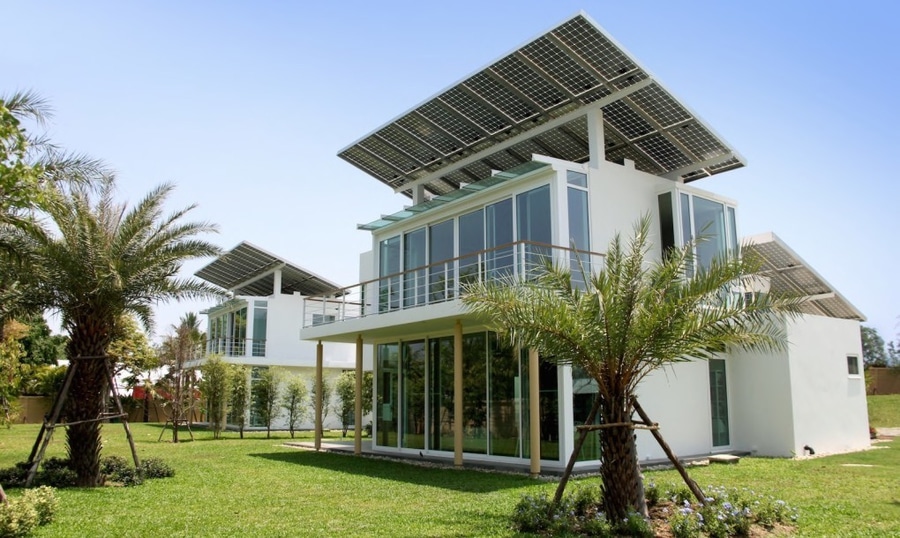
#RESIDENTIAL ARCHITECTURE PROJECTS
World’s first solar-powered hydrogen development takes homes 100% off-grid
An innovative off-grid housing development in Chiang Mai, Thailand has set a new milestone in the journey towards greener and more sustainable living.
Developed by CNX Construction and owned by Sebastian-Justus Schmidt, the Phi Suea House is powered entirely by a solar-hydrogen system — a world’s first for energy storage of its size. The solar-powered hydrogen storage system provides 24-hour, year-round access to clean energy, even during periods of bad weather.
The 100% self-sustaining Phi Suea House development comprises a variety of buildings, from a workshop to guesthouses, but only five of the buildings and two water features—a large fishpond waterfall and a 400-square-meter swimming pool with a well pump—require electricity. Each structure is topped with solar panels and comes with its own inverters. All the electricity is fed into a central energy storage system that collects and then distributes the electricity based on demand. The project includes 86kW of photovoltaics that provide an average daily power production of 326.8kWh, an amount that surpasses the Phi Suea House’s monthly 6,000kWh energy demand.
Excess solar energy produced during the day is used to power anion exchange membrane electrolysers that split water into its constituent elements. While oxygen is released into the air, the hydrogen gas is stored in tanks. At night, fuel cells convert hydrogen back into electricity. The round-trip efficiency is near 50%. Hydrogen energy storage boasts several advantages over typical batteries including larger storage, zero unwanted byproducts, and a long storage life. However, the Phi Suea House project is also equipped with two 2,000-Ah, 48V lead-acid battery banks as a buffer and backup, though they are usually not discharged more than 10% in a single cycle.
Smart energy-efficient design helps reduce the Phi Suea House’s energy demands as well. Aerate concrete walls, double-glazed windows, natural ventilation, green walls, smart ceiling fans, and sun path analysis reduce the homes’ dependence on air conditioning, however, there are VRF air conditioning units installed as backups. Solar hot water systems heat the water without need for electricity. Rainwater is collected and treated onsite for reuse as irrigation. A KNX Automation system also helps boost energy savings; energy performance data will be collected and used for research at Nanyang Technical University in Singapore.
“Everyone should do something to live in a better world,” says Sebastian-Justus Schmidt. “Our family is now doing our part – leaving the world a greener place while gaining and sharing knowledge. This is without a doubt worth all efforts. We aim to have the lowest ecological footprint possible – especially as a foreigner in another country.”





